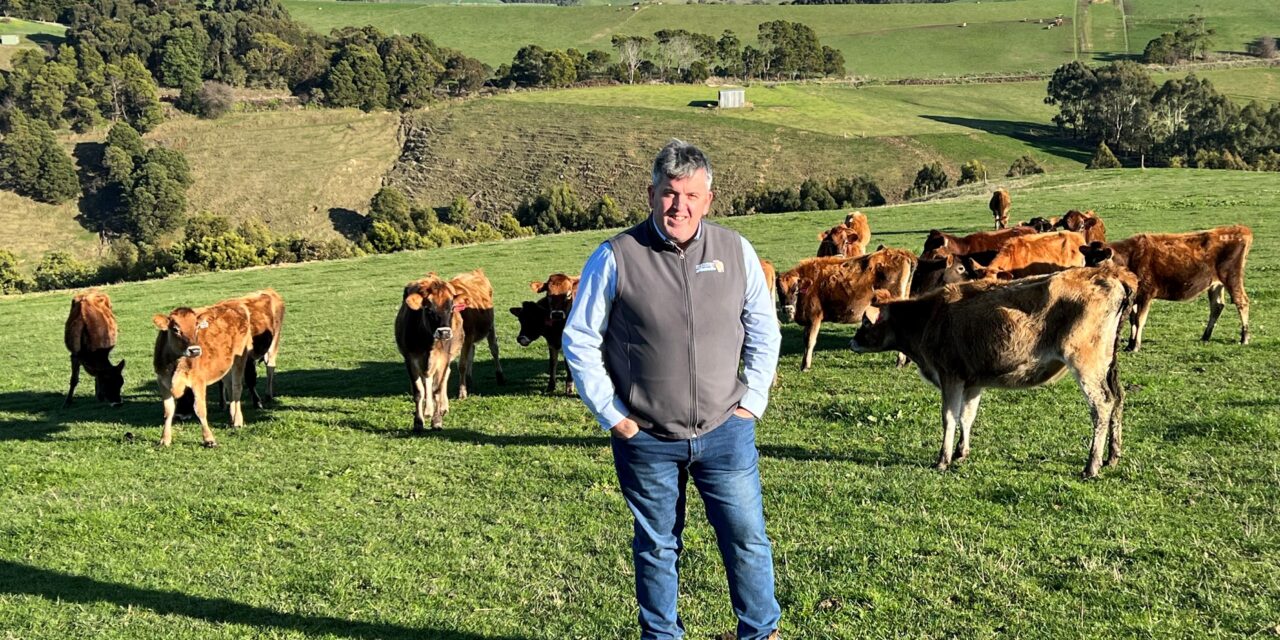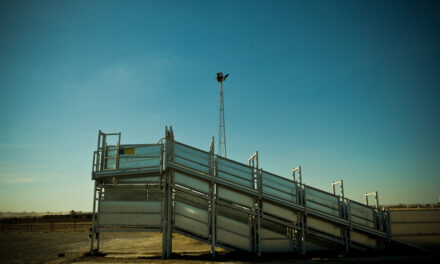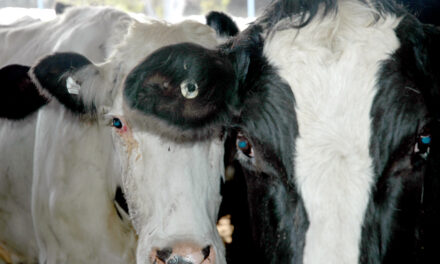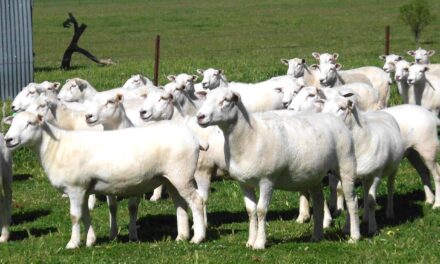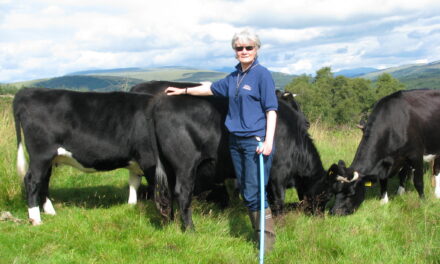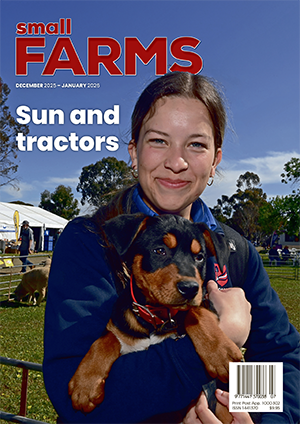Between his day job as Jersey Australia general manager and running his own small herd of beef cattle, Glen Barrett has struck the perfect work-life balance. He spoke to RICK BAYNE.
In his day job, Glen Barrett helps to advance the Jersey dairy cow, but in his spare time he farms another breed of cattle.
A born and bred dairy farmer from near Korumburra in South Gippsland, Glen has returned to the family’s 47ha block to run a small beef enterprise, along with a few dairy cows on agistment.
The farm is the ideal antidote to the administration duties that dominate Glen’s role as Jersey Australia general manager.
He describes it as a hobby farm with only 20 to 30 beef cows, although he admits the land is a bit too big for that description.
However you describe it, the farm is a way to keep in touch with the land and continue a long family tradition.
Glen’s parents had a Holstein-based farm and Glen later registered his own Holstein herd, Class Act.
He had eyes on a career as a Holstein farmer and breeder or as an accountant, but when he met city girl Aleks, it was time to move off the land.
“I couldn’t convince her to become a dairy farmer’s wife, so I left Korumburra for Sydney,” he said.
While he didn’t get to university, Glen completed TAFE accounting courses and in Sydney worked in a sheet piling business for two-and-a-half years before returning to Melbourne to work for eight years in finance and administration for an earthmoving and plant hire company.
“I wanted to be an accountant to bookend a management role, not so much be doing people’s taxes,” he said.
“My core background off-farm is finance and financial control and operations management.”
In 2013, Glen returned to a farm-based business as operations manager at Australian Dairy Herd Improvement Scheme (ADHIS), the forerunner to DataGene.
“Going back to a role in the dairy industry interested me,” he said.
“As much as I had left dairy farming, it had always been in the back of my mind that one day I could go back to it in some form.”
That role involved developing close connections with breed associations and AI companies and in 2018 led to an offer for his current position with Jersey Australia.
While Glen jokes that in layman’s terms, his job is about recording births, deaths and marriages for cows, in reality it is more than classifications, registrations and services, it’s about industry engagement, implementing board strategies, bringing opportunities to the board and promoting the breed.
It’s working. The national herd recorded a two per cent increase in Jersey cattle during the past year and eight per cent over the decade, rising to 17.4 per cent, while Holsteins now make up 70 per cent of the national herd, down from 80 per cent a decade earlier.
“The breeders in Australia have made that job easy,” Glen said.
“They are breeding a very good quality cow that has driven the promotions and marketing of the breed. With a greater focus on climate change and the carbon footprint of farming, Jersey cows are more and more being demonstrated as the right cow for the environment.”
Glen had always pondered the option of buying the family farm off his parents if the opportunity arose and he and Aleks moved out of Melbourne in July 2020.
“It was an opportunity to fulfil one of my dreams to go back to the farm where I grew up. It has given me a great sense of work-life balance,” he said.
When Glen left the farm in 2003, his parents sold the dairy cows and later sold a block to a neighbour and subdivided land for small acreage housing.
However, there’s enough land left to build up a small beef herd and also run 40 to 70 dairy cows on agistment, depending on the time of year. Glen has about 30 beef cows at the moment, mostly Angus with a few Jersey-Speckle Park crosses, but aims to get to 50.
The agistment service reflects Glen’s love of his local community as he hosts a few cows for the cricket club and aged care facility as a fundraiser. His children have also invested in some cows.
While Glen is unlikely to ever get back into hands-on dairying, he enjoys his Jersey role and the beef enterprise and agistment function.
“I enjoy having the farm,” he said.
“It’s a nice outlet physically after looking at computer screens most days and it’s an opportunity to build an investment in our future and where we want to be post-retirement.”
As a part-time hobby, Glen admits “we’re not putting a lot of science into what we’re doing”.
“Having high-quality registered animals is probably price prohibitive at the moment, but we manage what we do and sell at the Koonwarra market when they’re ready,” he said.
“It’s pretty straightforward. We don’t over-think it. At the end of the day, it’s a hobby farm and we don’t want to overcommit, though it is a bit big for a hobby farm.
“The most important thing I get out of it is the work-life balance.”
Glen is full-time with Jersey Australia, usually two days per week from the head office in Bundoora. Depending on the time of year, he dedicates an hour or two most days to the farm.
“When you’re not having to feed cows, it’s pretty simple. I let them control it and just add a bit of fertiliser on the hay paddocks,” he said.
“Our ambition is just that the property pays for itself as we build it up.”
Glen has completed some pasture renovation this year.
“My parents bought the place in 1976 and it has never been renovated and the hay paddocks were producing stalky, rough hay. It was nice to have a bit of fun sitting on the tractor for a few hours,” he said.
“I enjoy what I’m doing and don’t plan to change. This is a lovely area and it’s home for me.”
Swapping breeds
